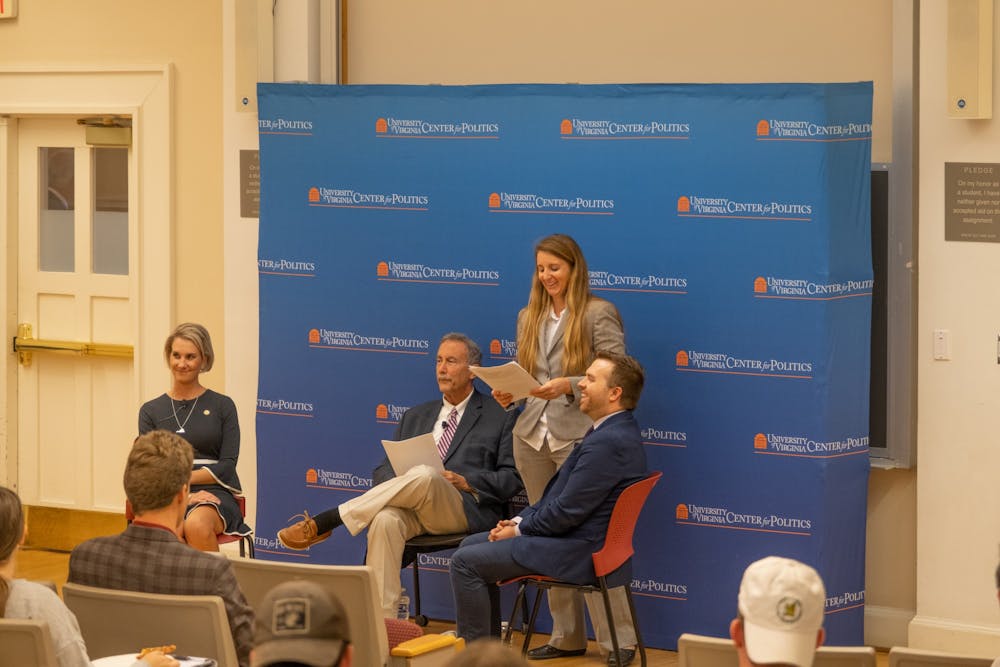The Center for Politics discussed young adults’ political involvement and issues facing local politicians Tuesday night at an event featuring Virginia Delegate Amanda Batten and Ryan Fecteau, speaker of the Maine House of Representatives. The event was moderated by Larry Sabato, director of the Center for Politics and professor of politics.
The conversation began with an introduction by Carah Ong Whaley, academic program officer of the Center for Politics. Whaley described the disproportionate representation of older Americans in Politics.
In contrast, Sabato asked Fecteau and Batten about their experience as young politicians and their original interest in politics.
Fecteau was first elected at the age of 21 during his time at the Catholic University of America. He said his affiliation with the Democratic Party comes from his identity as a gay man.
“I came out in my first year at Catholic,” said Fecteau. “I saw a party that supported me, and I saw a party that didn't support me.”
Batten emphasized her life experiences, travels and jobs as the basis for her political career and party affiliation. Batten characterized herself as a libertarian, describing an experience during her husband’s time in the U.S. Army as a poor example of a government-controlled healthcare system that helped form her current beliefs.
As moderate legislators with diverse backgrounds, the two discussed remedies for increasing partisanship in politics. Both candidates focused on the importance of their constituency in state legislative voting and bipartisan collaboration within their state legislatures.
“The thing that I would say above all is know your constituents,” Batten said. “You might have the best ideas in the world. You might be the best person in the world. But you need to make sure that you're reflecting and representing the folks who actually live in whatever legislative district or local office that you're looking to run for.”
Citing their own personal incentives to become involved in local politics, Sabato spurred a conversation regarding decreased American engagement with local politics, particularly in midterm elections — such as the one coming up Nov. 8.
“I don't mean to disparage my friends who are up in Washington D.C., but I really don't like federal politics,” Batten said. “So it drives me nuts that everyone is focused on it all the time. Because the things that really touch your life — like the DMV or the pothole on your street — those are state functions.”
In addition to local politics, the talk referenced the relatively low engagement levels among young adults. Although turnout has improved in recent elections, voter turnout has historically been low among 18 to 29 year olds.
To remedy this issue, Batten, Fecteau and Sabato all encouraged young people to become more involved in politics — regardless of party affiliation or previous experience.
“I think young people are coming to the table with an appetite to get things done, and that's been my experience with the legislature,” Fecteau said. “I would love to see young people elected on both sides of the aisle regardless of party affiliation.”







